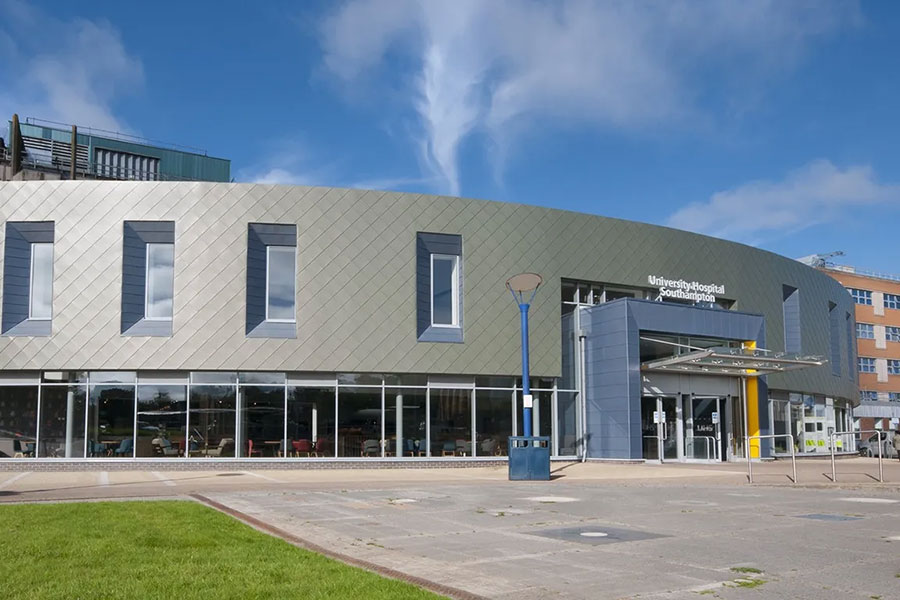University Hospital Southampton Successfully Pilots Our 3-Way Match Invoicing Solution Resulting in Improved Auditing and Transparency of eDirect Orders
We have worked closely with NHS Supply Chain to trial their Hybrid Invoicing Solution for 3-way matching, resulting in a workable solution for our challenges around managing eDirect orders; a process that means that our eDirect orders can be subject to the same full rigour of a 3-way match as it would be if we’d ordered direct from a supplier, where we only pay for goods after we are 100% comfortable we have received the item.
Natalie Middleton, Head of Supply, Wessex Procurement Ltd
Overview
eDirect is an established NHS Supply Chain supply route. It enables us to offer products to the NHS not currently stocked in our warehouses. Customers order products through our catalogue that are delivered directly from the supplier.
As standard practice, we issue consolidated invoices. This billing process is a one-line invoice that ‘rolls up’ the total value of goods delivered within that given week to the trust, purchased through us. It is supported by backing data, detailing goods delivered and how the invoice is totalled.
In most cases, NHS trusts are comfortable with the consolidated invoicing model as this reduces their administrative and financial handling costs. However, there are cases where a customer may want a heightened level of financial match, especially for (but not limited to) orders of high value or clinical importance.
The challenge
In recent years, University Hospital Southampton, (through Wessex Procurement Ltd), has significantly increased its purchases of eDirect items from NHS Supply Chain, especially with the introduction of the Specialised Services Devices Programme (SSDP). When the hospital previously purchased the products directly from the supplier it used a three-step process to ensure it only paid for items it received: purchase order, receipt, and invoice.
However, eDirect orders use a simpler two-step process, where payment is automatically made based on orders without requiring a receipt. This lack of receipt confirmation led to issues with transparency and occasional payments for items not received.
To address this, the hospital sought a new process that reinstated receipt confirmation before payment, ensuring payments were only made for received items. This new process would mirror the previous three-step method, providing greater assurance before payment is made.

The solution
We received feedback from various trusts, including Southampton, expressing the need to confirm goods before paying for eDirect orders. To address this, we formed a team and reached out to Natalie Middleton at Wessex Procurement to see if University Hospital Southampton would be interested in testing a new process.
After an initial call to explain the process, we had several follow-up meetings with the trust and provided them with a designated contact person for any questions or issues.
Initially, we suggested implementing a 3-way matching system for all purchases, but this wasn’t feasible due to the high volume of goods from NHS Supply Chain. So, we collaborated with our Accounts Receivables team and the hospital’s Finance and Procurement Systems teams to develop a hybrid invoicing solution. This allowed specific requisition points to be flagged for 3-way matching, ensuring payment was made only when all criteria were met. We then tested this solution internally at the hospital as a pilot program.
The results
The trust agreed to test the hybrid approach, which could be adjusted based on its needs and the value of purchases. It successfully processed many invoices using the 3-way match system and flagged those that didn’t meet the criteria. This allowed the trust to investigate non-receipt cases instead of automatically paying invoices as before. A diverse team made this implementation successful by understanding its importance.
The hybrid invoicing solution brought several benefits, including:
- Being auditable
- Transparency
- Identification of delivery discrepancies from the outset
- Cash management and stronger controls
- Reduction in risk and fraudulent activities
- Supporting route cause analysis on delivery issues made.
Initially, tracking invoice status was challenging, but it was resolved by our Accounts Receivables team providing regular statements and access to our billing portal for real-time updates.
Next steps
If you are interested in implementing a 3-way match invoicing solution within your trust please contact Freddy Sadeghi, our 3-Way Match Project Lead and Service Support Lead:
We asked University Hospital Southampton to share their top three tips for other trusts to follow when implementing a 3-way match invoicing solution.
- Choose a small control area to trial first. To start with the trust trialled on requisition points where all the requirements were high value, eDirect and low turnover. This meant the process could be tested with low risk while staff learned the new process and dealt with any issues.
- Consider the parameters to which you want to apply 3-way match. Southampton is considering how it roles out further with a clear guideline of what makes something 3-way match, likely to be based on value.
- Engage with colleagues who manage your Purchase-2-Pay (P2P) system to ensure any catalogue or system changes are done to move to 3-way matching.
